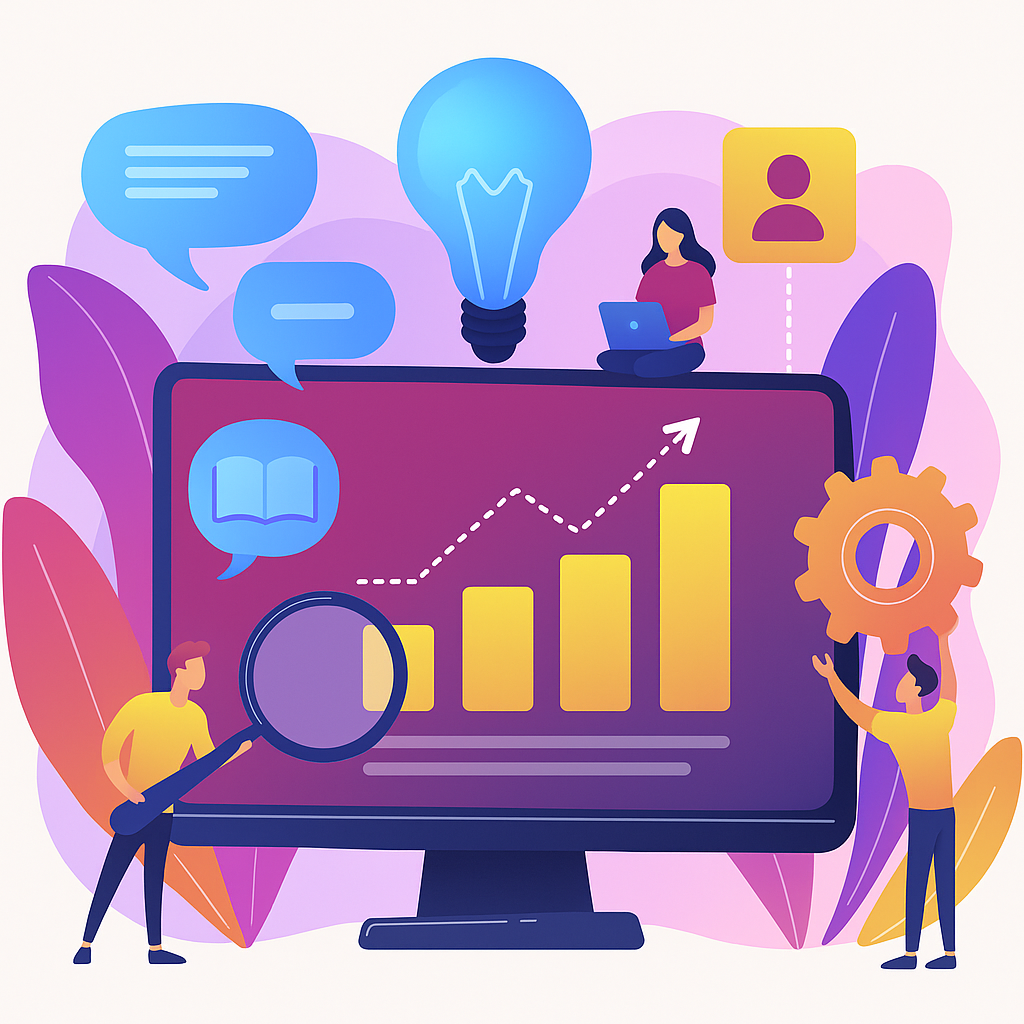Organizational learning: a key performance driver in the digital age

What is organizational learning?
Organizational learning is a company's ability to transform collective experience into actionable knowledge. This means that every project, every mistake, every user interaction or feedback becomes an opportunity for continuous improvement.
It's not just a matter of training employees from time to time, but of creating a learning ecosystem, where knowledge circulates freely, is structured and takes root over the long term.
Organizational learning rests on 3 pillars:
Collective memorization: formalize best practices and feedback.
Transmission: share knowledge company-wide via collaborative or training tools.
Adaptation: adjust processes, tools and behaviors according to the learning acquired.
Why is organizational learning crucial today?
In the age of digitalization and hybrid working, companies operate in a VUCA (volatile, uncertain, complex, ambiguous) environment. 70% of transformation projects fail due to poor change management, often linked to a collective learning deficit. In this context, the ability to learn quickly and well becomes a strategic skill.
How to foster a culture of organizational learning?
Technology alone is not enough. For organizational learning to become a reality, certain cultural and managerial conditions must be met:
Encouraging the right to make mistakes
Mistakes are a valuable source of learning. It must be recognized, documented and exploited rather than punished.
Sharing knowledge
Set up experience-sharing forums (communities of practice, collaborative platforms, intelligent intranets, etc.).
Promoting in-house ambassadors
They are often the ones who hold the keys to operational knowledge. Give them a voice, and equip them to transmit effectively.
Integrating learning into workflows
Digital adoption platforms like K-NOW make it possible: learn in context, without leaving your tools.
Conclusion: Organizational learning, a winning strategy
Making organizational learning a pillar of your digital transformation means investing in your company's resilience, agility and sustainable performance. With tools such as K-NOW, K-STUDIO and K-VALUE, Knowmore supports companies in implementing a fluid, measurable learning culture.
It's no longer just a question of training, but of enabling each employee to learn continuously, to appropriate the tools, to contribute to the evolution of processes, and ultimately, to reinforce the collective intelligence of the organization.
What's next?
Would you like to know how to integrate organizational learning into your company?
📅 Schedule a personalized demo with our experts.

